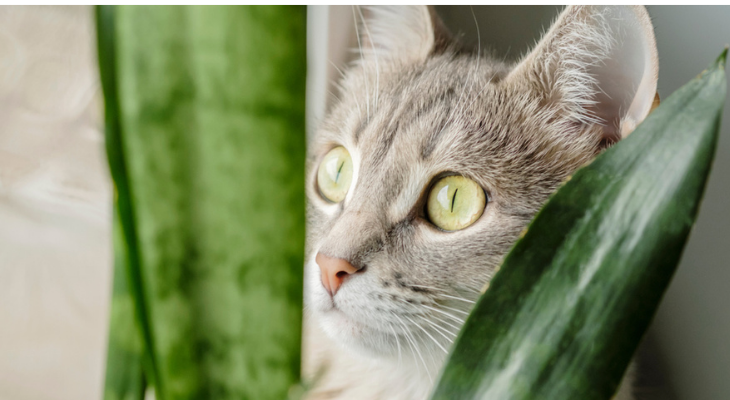
Which Plants Are Safe for Your Cat?
Plants make the perfect snacks as far as many cats are concerned. Unfortunately, taking a bite of some common houseplants can make your pet very sick. Before your next visit to the garden center, take a look at our list of the safest house plants if you have cats.
What Happens if My Cat Eats a Toxic Plant?
Depending on the type of plant and how much your cat eats, your pet may have no symptoms, might experience a little nausea or diarrhea, or could become very sick and die. In addition to nausea and diarrhea, symptoms that may mean that your pet has eaten a toxic plant, include:
- Excessive Drooling
- Fatigue or Low Energy
- Itching or Redness Around the Mouth
- Drinking More Water Than Usual
- Urinating More Often
- Trouble Swallowing
- Irregular Heartbeat
- Seizures
- Collapse
If you notice any of these symptoms, take your pet to the veterinarian immediately. Every minute counts if your pet has eaten a potentially deadly plant.
Which Plants Are Toxic?
Many plants can make your cat sick, such as these common houseplants:
- Begonia
- Indian Rubber Plant
- Any Plant in the Lily Family
- Asparagus Fern
- Tulips (Particularly the Bulbs)
- Daffodils
- Holly Plants (berries)
- Aloe Vera
- Sago Palm
- Cutleaf Philodendron
- Snake Plant
- Devil's Ivy
- Jade Plant
- Amaryllis
- Eucalyptus
- Azalea
- Hydrangea
- Hyacinth
- Elephant's Ear
This is just a partial list of toxic plants. If you're not sure if a particular plant is safe for your cat, take a look at the ASPCA's list of toxic and non-toxic plants.
What Are the Safest Plants if I Have a Cat?
Although the list of toxic plants may seem long, many attractive plants are safe for your pet. When you choose a new plant for your home, consider one of these varieties:
- African Violet
- Prayer Plant
- Banana Leaf
- Baby's Tears
- Gerbera Daisy
- Palm Tree
- Bamboo
- Swedish Ivy
- Asparagus Fern
- Zebra Plant
- Friendship Plant
- Prayer Plant
- Boston Fern
- Christmas Cactus
- Ponytail Palm
- Wax Plant
- Money Tree
- Wandering Jew
- Spider Plant
- Cast Iron Plant
- Gloxinia
- Peperomia
- Venus Flytrap
Does your cat enjoy rolling around on the floor with a toy mouse stuffed with catnip? Adding a catnip plant to your windowsill is bound to make your furry friend happy. If your cat gets too rambunctious after chowing down on the plant, you may want to keep the plant in a closed room and only bring it out occasionally.
Plants don't have to be expensive to be cat-friendly. In fact, a pot of planted grass will add color to your kitchen or family room and offer plenty of chewing fun for your favorite feline. Oat grass or wheatgrass are good choices if you want to grow grass for your cat's enjoyment.
Although grass is non-toxic, eating it can trigger vomiting, since cats don't have an enzyme that helps digest the green stuff. If that's the case, you may want to limit the time your pet spends around the plant.
If your cat constantly knocks over plants or you're having trouble finding a non-toxic plant that you like, artificial plants offer a good alternative. Today's faux plants look incredibly realistic, and best of all, never need to be watered.
Are you worried that your cat may have taken a bite of a toxic or questionable plant? Give us a call and we'll let you know if your pet needs to be seen. Be sure to call as soon as you realize or think that your cat has eaten a potentially dangerous plant.
Sources:
Prevention: 20 Beautiful, Non-Toxic Houseplants That Are Safe for Cats, 3/29,2022
Hill’s: The Most Common Poisonous Plants to Cats, 11/15/2019
Gardener’s World: How to Create a Cat-Friendly Garden, 4/18/2019
